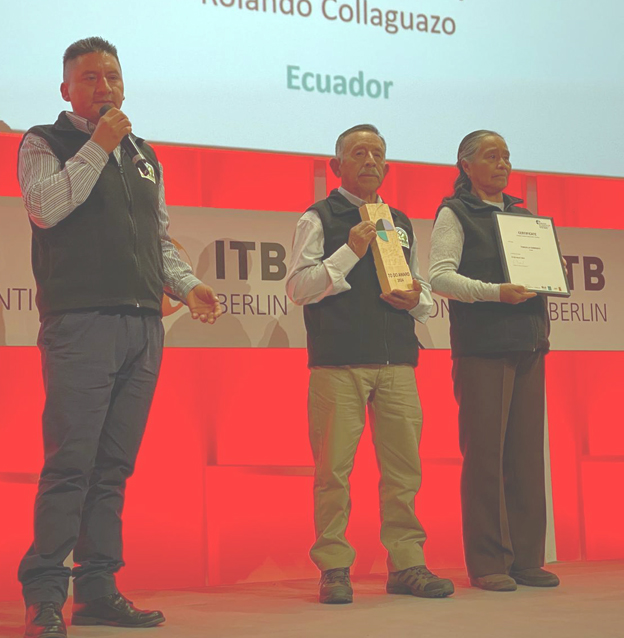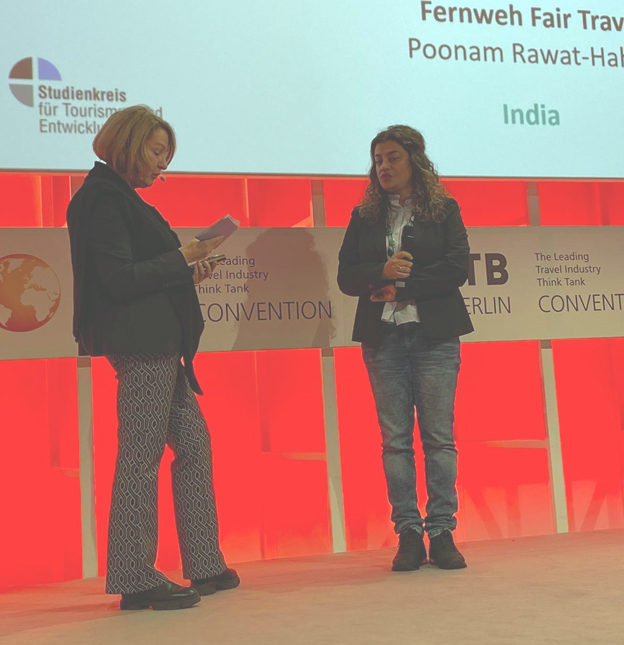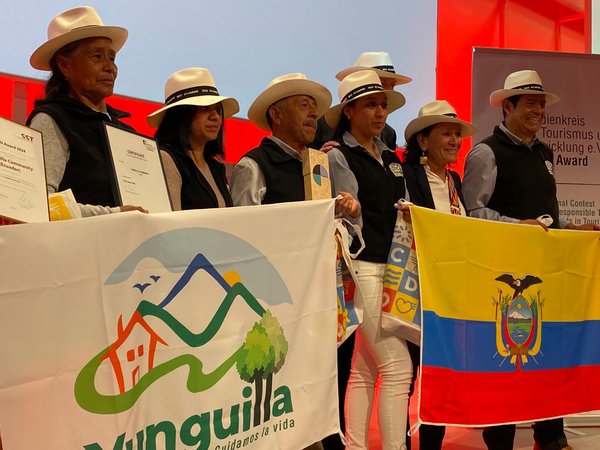- Share this article
- Subscribe to our newsletter
Socially responsible tourism – best practices appreciated
Tourism can be used to leverage the improvement of living conditions in rural communities while conserving nature and culture at the same time. Two examples of this were distinguished with the TO DO Award for Socially Responsible Tourism at the world‘s largest tourism trade fair, ITB Berlin, in March. “The success of the two ventures shows that socially responsible tourism can also be viable economically in the long run,” says Claudia Mitteneder, Managing Director of the Institute for Tourism and Development.
Community Tourism Yunguilla
Yunguilla lies in a cloud forest region at an altitude of 2,650 metres in the Ecuadorian Andes. In the past nearly 30 years, setting out from a subsistence economy, the roughly 250 inhabitants have succeeded in transforming the area into an attractive ecotourism destination within the Unesco Biosphere Reserve Chocó Andino de Pichincha. “We used to log the forest to live from it,” says Germán Collaguazo, who is responsible for the Technical Area at Yunguilla Corporation. Today, visitors to the 8,000 hectares of protected forest enjoy day excursions on historic Inca trails or guided tours around the cloud forest. Services for tourists centre on the homestay programme. The guests stay overnight with the local families and share not only meals but also the daily life of their hosts, working in farming and learning, among other things, how cheese and jam are produced.
“You can have a good life on the farm”
In addition to their role in forest conservation, the inhabitants of Yunguilla are above all proud of having halted the exodus from the community. “Young people go to the city to study or get training, but then they return and support the community with their knowledge and knowhow,” explains Germán Collaguazo, describing the impacts of the project, which stretches across three generations. The older people who took part in developing “Community Tourism Yunguilla” but can now no longer work for old age reasons receive a small salary from the monthly incomes of the tourism activities. “Everywhere in the world, it is said that people living on a farm are poor. But that isn’t true. If we use our natural resources in a sustainable way, we can have a good life on the farm,” Rolando Collaguazo, Adminstrator of the Yunguilla Corporation, emphasises.

Rolando Collaguazo (left) with two of the pioneers of "Community Tourism Yunguilla".
Photo: Studienkreis für Tourismus und Entwicklung.
Fernweh Fair Travel
“There was this young lady, a 20-year-old widow with two daughters. She was pregnant, and she came to our woman shelter and asked: ‘Can you help me?’ I said: ‘Yes, sure, you can come here with your daughters, and we can support you.’ But she answered: ‘No, I cannot come, I cannot leave my village, my in-laws will never allow me that.’ So she left. Next morning I gave my children to my mother and said: ‘Let me go and find out what is happening.’” And what Poonam Rawat-Hahne, founder of Fernweh Fair Travel, did find out was quite shocking. In the District of Chamoli in Indias’s Himalayas, there are an alarming number of young widows, perhaps only 20 to 25 years old, who live in severe poverty. The social norms deny the women any opportunity to ever marry again; just like numerous other women in the region, many of them are victims of domestic violence or sexual abuse.

Claudia Mitteneder, Managing Director of the Institute for Tourism and Develoopment (l.), in
conversation with Poonam Rawat-Hahne. Photo: Studienkreis für Tourismus und Entwicklung.
“These women are now walking with their head high”
Poonam Rawat-Hahne considered how she could create employment opportunities for the women concerned. A passionate traveller herself, she quickly recognised the region’s potential. Then it took five years for her to convince the local politicians, villagers and religious leaders to let the women work. Initial housing was arranged, and training for guest handling was provided. Today, 557 people, most of them women, sustain their livelihood through tourism-related income. In the context of the project, homestays as well as luxury accommodation in cottages which are run by women are offered. Above all nature and trekking enthusiasts as well as those seeking wellness take part in the tours. A portion of profits goes to environmental, educational and community projects.
“For us, it is important that responsible tourists come who are respectful to our communities,” says the founder of Fernweh Fair Travel. Mass tourism is not desired, so that only 15 trips a year are offered, which is enough to sustain the women. In the remaining time, they also continue working on the organic farms and in community facilities. “What gives me the maximum joy is that these women are now walking with their head high. Nobody can pressure them down anymore,” notes Rawat-Hahne, referring to what is perhaps the most important achievement of the project.
With its TO DO Award, the not for profit organisation Institute for Tourism and Development (Studienkreis für Tourismus und Entwicklung) has been developing initiatives enabling local people to participate and giving them voice in tourist projects and services since 1995. So far, out of 586 applications, 67 winners have been distinguished, with 59 of them coming from developing and emerging countries. This year, 21 applications have been submitted from 13 countries.
Silvia Richter, editor, Rural 21
More information:





Add a comment
Be the First to Comment